ARISE CONGOLESE!
VOLUME 1: THE STORY OF YALALA
Developed in working solidarity with LUCHA RDCongo, or Lutte pour le Changement (Struggle for Change), we have dedicated "Act 3: #ImmorteLuc" below to the life, bravery, honor, love, struggle and indomitable hope of LUCHA activist, Luc Nkulula. Luc's obituaries from LUCHA and The Guardian follow our Digital Graphic Novel For Peace below.
Luc gave his life fighting non-violently to restore the democratic and constitutional Republic that binds all Congolese to the life, liberty, prosperity, tranquility, Justice and freedoms of its People. Luc's love for his people, non-violent demonstration, indomitable bravery and Truth in the face of brutal oppression will live in our spirits for eternity.
RIP mighty warrior.
In this Act we have also honored our love for and solidarity with mama Justine Masika Mihamba and her incredible life-saving bravery at Synergie des Femmes pour les Victimes des Violences Sexuelles (SFVS) by featuring her likeness as Yalala Binja's mother.
Act 3 marks the completion of Volume 1: The Story of Yalala.
It has been our highest honor to learn from, serve, and create such works with the brave Congolese (and Western) heroes fighting for a new Congo. A Congo not defined by exploitation, war and tragedy but by a beautiful People, vision and constitution anchored in peace, progress and prosperity for all Congolese.
☛ Français: http://bit.ly/drc-const-french
☛ English: http://bit.ly/drc-const-eng
We are one People.
Love Congo.
UMOJA
#KabilaMustGo #CLE4DRC
PARTAGER-TÉLÉCHARGER / SHARE-DOWNLOAD
ACT 3: #ImmorteLuc in High Definition:
☛ Français: http://bit.ly/2KnwmA9
☛ Swahili: http://bit.ly/2AxAaig
☛ Lingala: http://bit.ly/2O6kpRj
☛ English: http://bit.ly/2n2AXOK
English in Standard Definition:
Obituary originally published by The Gaurdian:
Minutes before he died, aged 32, in a fire, the activist Luc Nkulula, trapped by the flames in his wooden house, was passing his life’s work out through the barred window. He died as he had lived: thinking first of Lucha, the movement he and other fearless young Congolese had built, enduring arrests, beatings and repression in order to further their ideals of democratic change and creating a future for the youth of the Democratic Republic of the Congo.
“Congo is great; it requires greatness of spirit,” was Nkulula’s motto, apparently borrowed from Patrice Lumumba, the DRC’s first democratically elected leader, who was assassinated in a coup allegedly sponsored by Belgium and the CIA.
Nkululu joined Lucha, or Lutte pour le Changement (Struggle for Change) in 2012, not long after the movement was founded in the eastern city of Goma. When the Congolese president Joseph Kabila met Lucha activists in summer 2016 after years of repression, it was Nkulula who did most of the talking. He asked Kabila, then at the end of his constitutional mandate, to leave power.
Few have believed Kabila’s repeated assurances since then that he is about to step down. Much of the violence that has forced 4.5 million people to flee their homes seems to be part of Kabila’s plan to cling on at the DRC’s helm. After the era of plunder under King Leopold II of Belgium that ended in 1909, and then half a century more of colonialism, this huge and diverse country had Lumumba as prime minister for less than three months in 1960 before he was killed. Since then, Mobutu Sese Seko and the Kabilas have successively been in charge.
Nkulula was notoriously straight-talking, but telling Kabila to get out took a rare kind of bravery. According to other Lucha members, the president was asking the group to give him more time to organise elections. After the meeting, he released their comrades from prison.
The idea that Kabila would plead with young, seemingly powerless people for a reprieve is testament to the respect Lucha had built up. Six years after its founding, the organisation now has around 3,000-4,000 members, mostly aged under 25, and though their ability to mobilise the masses is modest, they have established a considerable presence. Lucha refused to grant the president’s request for more time, and continued their protests demanding his resignation.
I met Nkulula a few months after Kabila did, in a quiet garden cafe in Goma, but we had to move location to escape intelligence agents, who were always trailing Lucha members. Most people in the DRC are careful what they say. Nkulula spoke his mind, and was open in criticising Kabila.
He was born in Lubumbashi, in the south-east of what was then Zaire, and grew up between there and Goma; his mother, Nunu Kabuo Kakule, worked for the state air transport company, and his father, Emile Mwamba wa Nkulula, was a doctor. Luc studied law at Goma University, and did legal consultancies for international organisations after graduating. After joining Lucha he helped shape it into a movement that did not just talk, but took action.
A few days after I met him, he was at a Lucha meeting in a school courtyard in Goma, sitting with his comrades on lumps of lava from the volcano that looms, and sometimes explodes, over the city. As children played basketball behind them, the group discussed logistics for an upcoming “ville morte” demonstration. Was two days of a stay-at-home protest financially possible for the hard-up population? Should protesters sing a well-known protest song, risking arrest if the police heard?
Nkulula was the first in Lucha to be arrested, in 2012, and he spent weeks in the cells and received many death threats. His nickname was H2O, because of his vital role in the movement. “Does that mean we’ve lost hope to continue the battle? Not at all, because the water Luc gave us is the same water we’ll use to carry on the struggle,” said his friend Juvin Kombi.
The Lucha leadership thinks Nkulula was assassinated. The same public prosecutor who continually brought charges against Nkulula and his friends was initially given the task of investigating the matter. But after Lucha complained, the UN peacekeeping mission has also launched an inquiry.
In the DRC, the dead are often counted by the million. Ten million killed under Leopold; four million in the war that began after Mobutu’s overthrow in 1997; right now nearly half a million children in one wartorn province, Kasai, are on the verge of dying of malnutrition. But Nkulula’s death, like Lumumba’s, stands out because of the promise he represented of changing politics in the DRC.
“I’m not scared of dying, I’m scared of dying without having fought for my dignity and that of my people,” he once said.
His mother died in 2010. He is survived by his father, Emile, and his sister, Amen.
Luc Nkulula Wamwamba, political activist, born 18 October 1985; died 10 June 2018
###
“Congo is great; it requires greatness of spirit,” was Nkulula’s motto, apparently borrowed from Patrice Lumumba, the DRC’s first democratically elected leader, who was assassinated in a coup allegedly sponsored by Belgium and the CIA.
Nkululu joined Lucha, or Lutte pour le Changement (Struggle for Change) in 2012, not long after the movement was founded in the eastern city of Goma. When the Congolese president Joseph Kabila met Lucha activists in summer 2016 after years of repression, it was Nkulula who did most of the talking. He asked Kabila, then at the end of his constitutional mandate, to leave power.
Few have believed Kabila’s repeated assurances since then that he is about to step down. Much of the violence that has forced 4.5 million people to flee their homes seems to be part of Kabila’s plan to cling on at the DRC’s helm. After the era of plunder under King Leopold II of Belgium that ended in 1909, and then half a century more of colonialism, this huge and diverse country had Lumumba as prime minister for less than three months in 1960 before he was killed. Since then, Mobutu Sese Seko and the Kabilas have successively been in charge.
Nkulula was notoriously straight-talking, but telling Kabila to get out took a rare kind of bravery. According to other Lucha members, the president was asking the group to give him more time to organise elections. After the meeting, he released their comrades from prison.
The idea that Kabila would plead with young, seemingly powerless people for a reprieve is testament to the respect Lucha had built up. Six years after its founding, the organisation now has around 3,000-4,000 members, mostly aged under 25, and though their ability to mobilise the masses is modest, they have established a considerable presence. Lucha refused to grant the president’s request for more time, and continued their protests demanding his resignation.
I met Nkulula a few months after Kabila did, in a quiet garden cafe in Goma, but we had to move location to escape intelligence agents, who were always trailing Lucha members. Most people in the DRC are careful what they say. Nkulula spoke his mind, and was open in criticising Kabila.
He was born in Lubumbashi, in the south-east of what was then Zaire, and grew up between there and Goma; his mother, Nunu Kabuo Kakule, worked for the state air transport company, and his father, Emile Mwamba wa Nkulula, was a doctor. Luc studied law at Goma University, and did legal consultancies for international organisations after graduating. After joining Lucha he helped shape it into a movement that did not just talk, but took action.
A few days after I met him, he was at a Lucha meeting in a school courtyard in Goma, sitting with his comrades on lumps of lava from the volcano that looms, and sometimes explodes, over the city. As children played basketball behind them, the group discussed logistics for an upcoming “ville morte” demonstration. Was two days of a stay-at-home protest financially possible for the hard-up population? Should protesters sing a well-known protest song, risking arrest if the police heard?
Nkulula was the first in Lucha to be arrested, in 2012, and he spent weeks in the cells and received many death threats. His nickname was H2O, because of his vital role in the movement. “Does that mean we’ve lost hope to continue the battle? Not at all, because the water Luc gave us is the same water we’ll use to carry on the struggle,” said his friend Juvin Kombi.
The Lucha leadership thinks Nkulula was assassinated. The same public prosecutor who continually brought charges against Nkulula and his friends was initially given the task of investigating the matter. But after Lucha complained, the UN peacekeeping mission has also launched an inquiry.
In the DRC, the dead are often counted by the million. Ten million killed under Leopold; four million in the war that began after Mobutu’s overthrow in 1997; right now nearly half a million children in one wartorn province, Kasai, are on the verge of dying of malnutrition. But Nkulula’s death, like Lumumba’s, stands out because of the promise he represented of changing politics in the DRC.
“I’m not scared of dying, I’m scared of dying without having fought for my dignity and that of my people,” he once said.
His mother died in 2010. He is survived by his father, Emile, and his sister, Amen.
Luc Nkulula Wamwamba, political activist, born 18 October 1985; died 10 June 2018
###
Obituary originally published by LUCHA:
Death of Luc Nkulula, one of the pioneers of the lucha, in circumstances disorder
Communiqué no. Lucha / 2018012
We have the deep pain to announce the tragic and sudden disappearance of comrade LUC NKULULA WA-Mwamba, one of the pioneers of Lucha, in troubled circumstances.
The remains of Luc Nkulula's body were found this sunday in the rubble of his house located in the himbi district, in the city of goma, which was ravaged by a fire in the night of Saturday to this Sunday, June 10, 2018. The fire found around 1 in the morning reduced the two houses of the concession, including the one where luc nkulula lived alone with his sister. The latter and the tenants of the second house are free. The cause of the fire, like the real cause and the circumstances of our comrade's death, remain a mystery. The remains are kept at the morgue of the goma general hospital, and mourning is held in a family residence in the katindo district, behind the joy plaza hotel.
Luc Nkulula, 33, was among the pioneers of Lucha, present on all fronts since the birth of the movement in 2012. He was a young leader full of charisma, always on the front line in the most risky actions. It was a free and fearless spirit; a noble and generous heart. Throughout his short life he has been a strong defender of the peace, freedom and dignity of the congolese people. We lose a comrade, a brother, a friend and an irreplaceable model. The Congo loses another star; a hero of lumumba's quenching!
The Lucha requires the authorities a quick, transparent and credible investigation, with international assistance, to determine the cause and circumstances of Luc Nkulula's death. In the meantime, measures must be taken to preserve the remains of the body and the fire scene. We will stir heaven and earth so that all light is made on this tragedy!
We urge all activists, supporters and friends of la lucha particularly tested by this tragedy to remain United, serene and worthy. A Crisis Committee has just been established to manage, in collaboration with the biological family, aspects related to communication, investigations, tributes and funerals. Luc Nkulula's sudden disappearance leaves us orphans and devastated, but we must and will remain worthy of the hero he is, give him all the tributes he deserves, and find in this tragedy one more reason to continue our struggle for a congo New. The Crisis Committee will communicate as soon as possible.
For any questions or suggestions, as for tributes and support messages, please contact us via our usual channels (see above).
Done on June 10, 2018 in goma
###

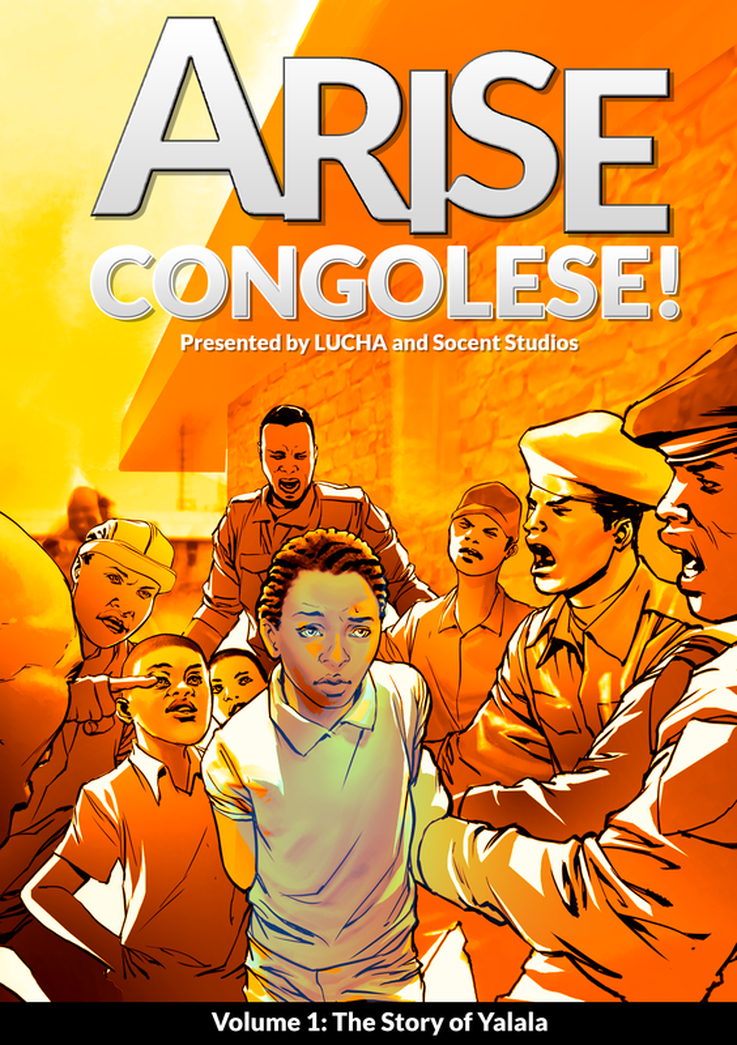
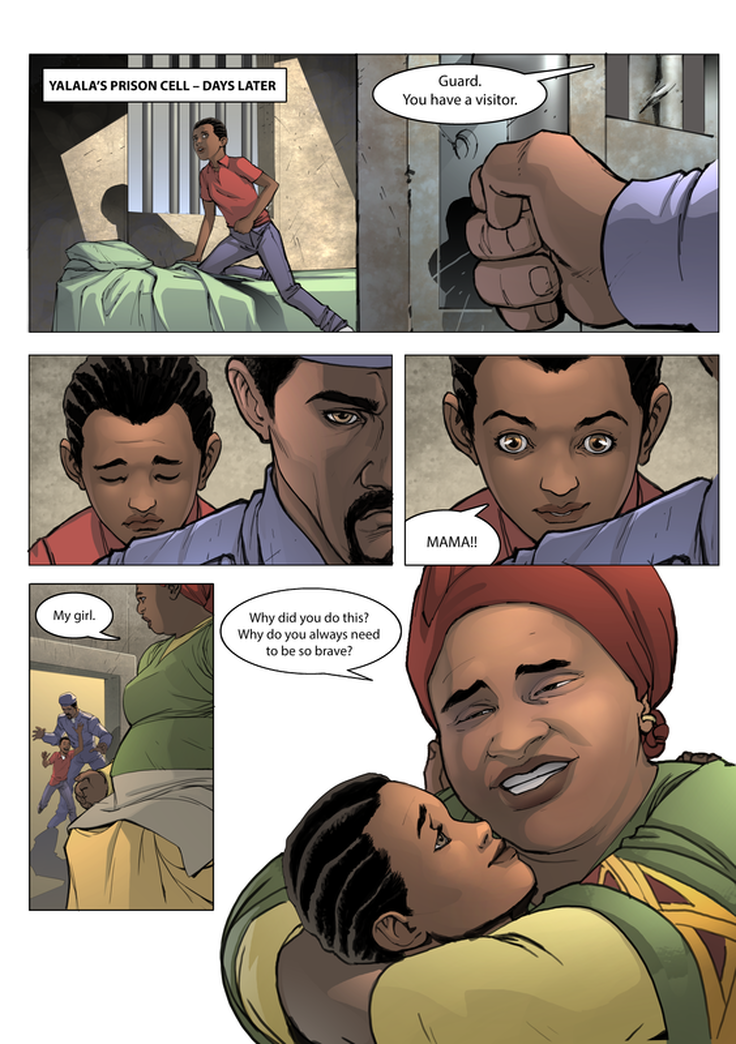
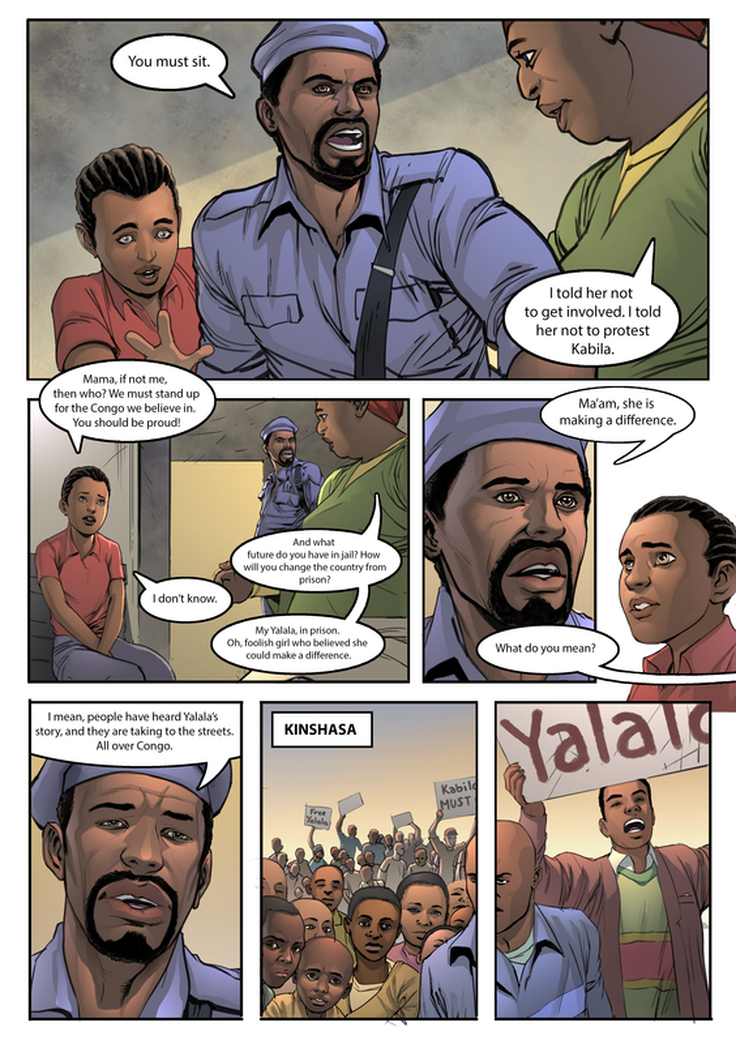
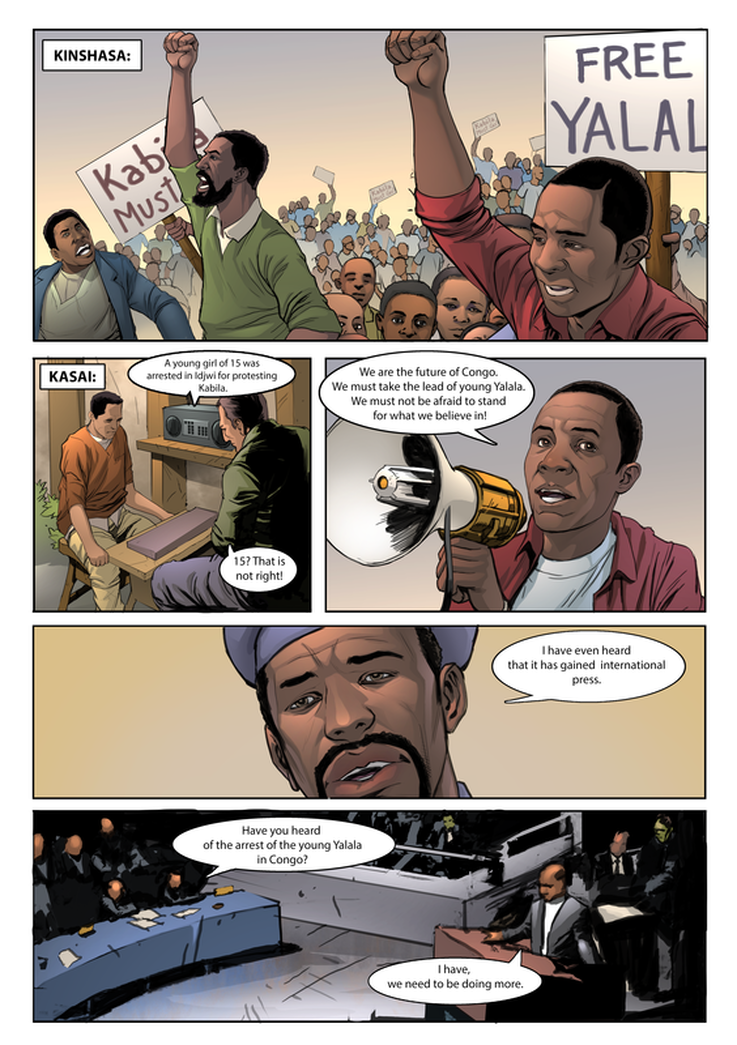
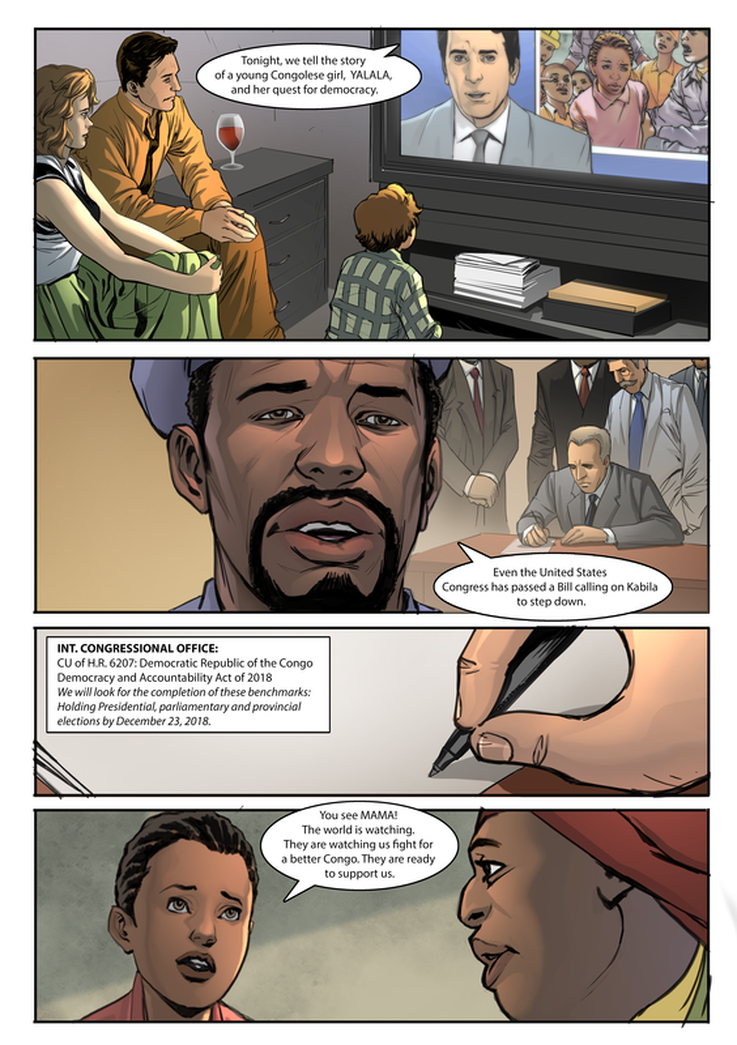
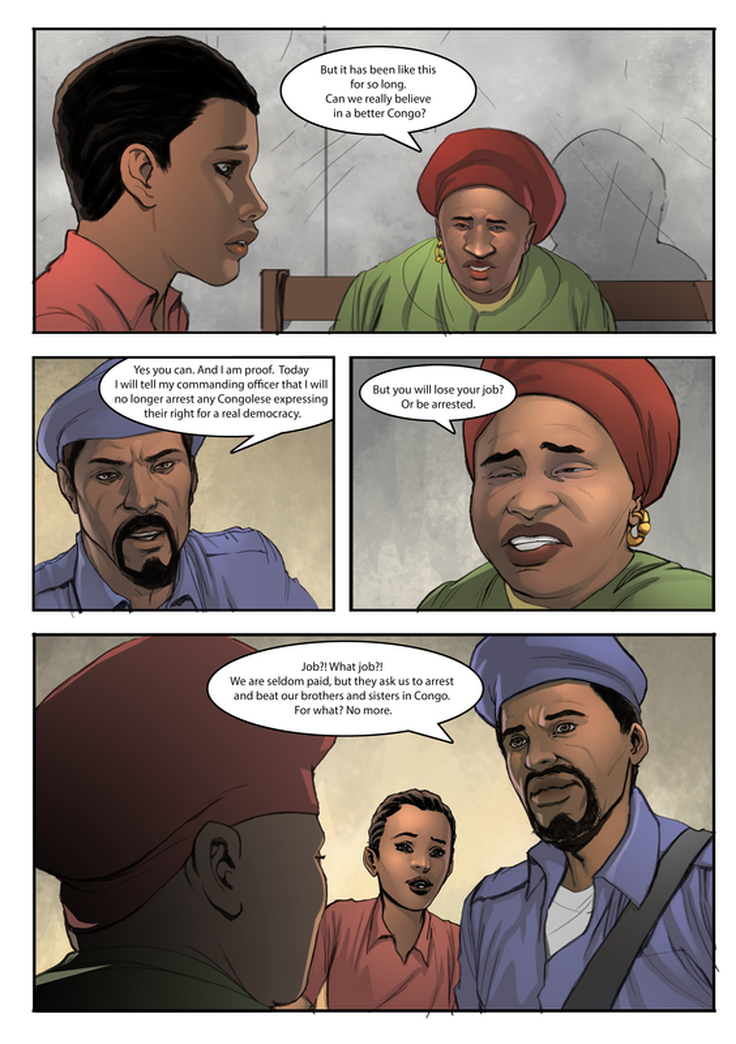
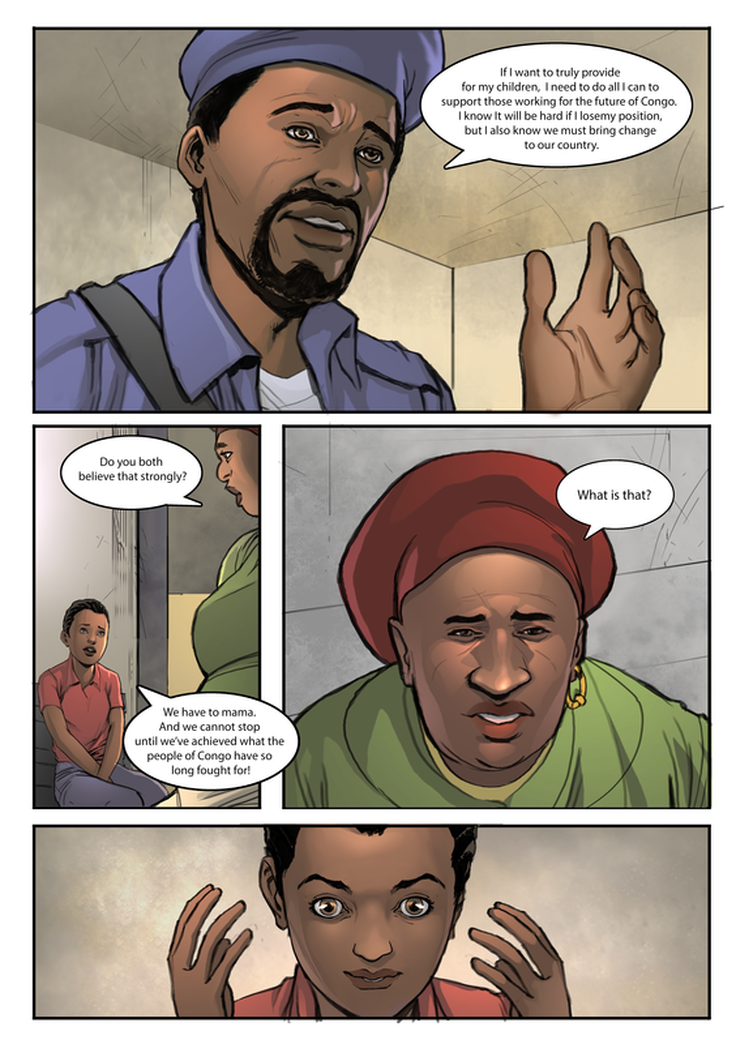
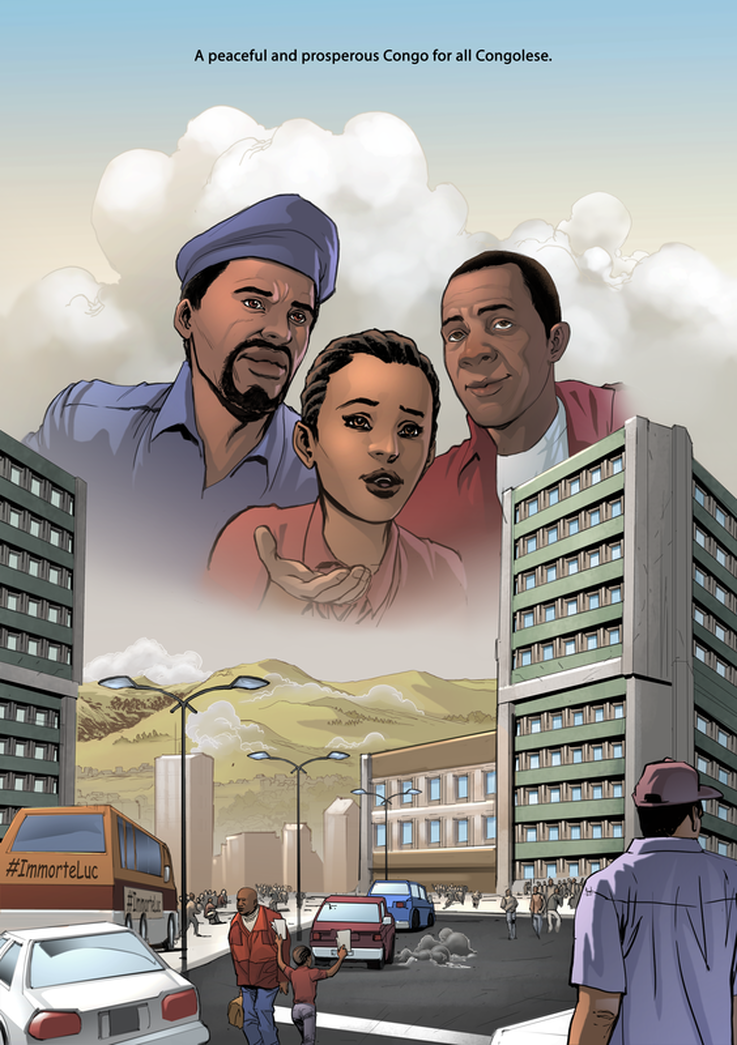
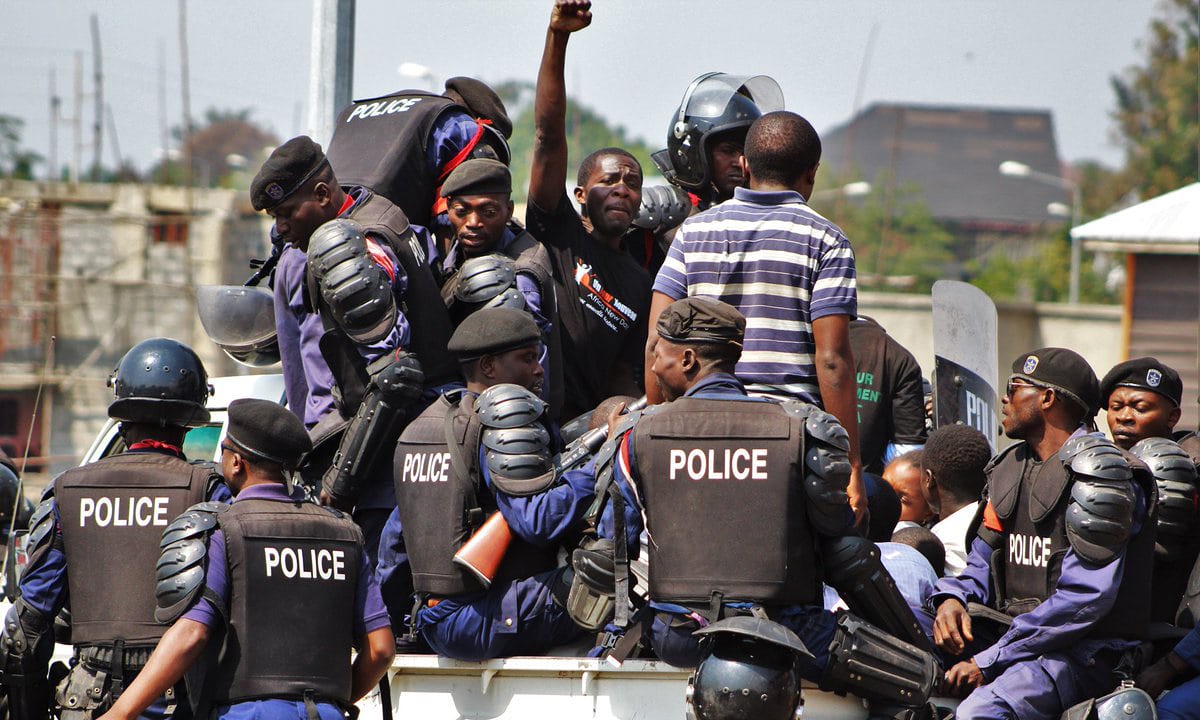
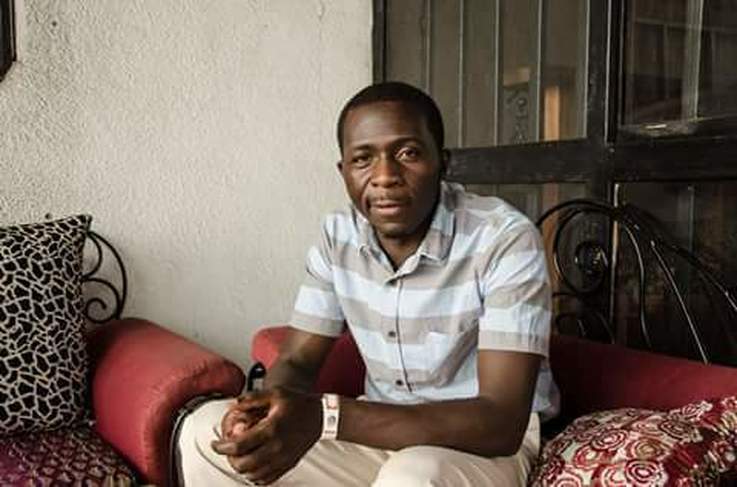
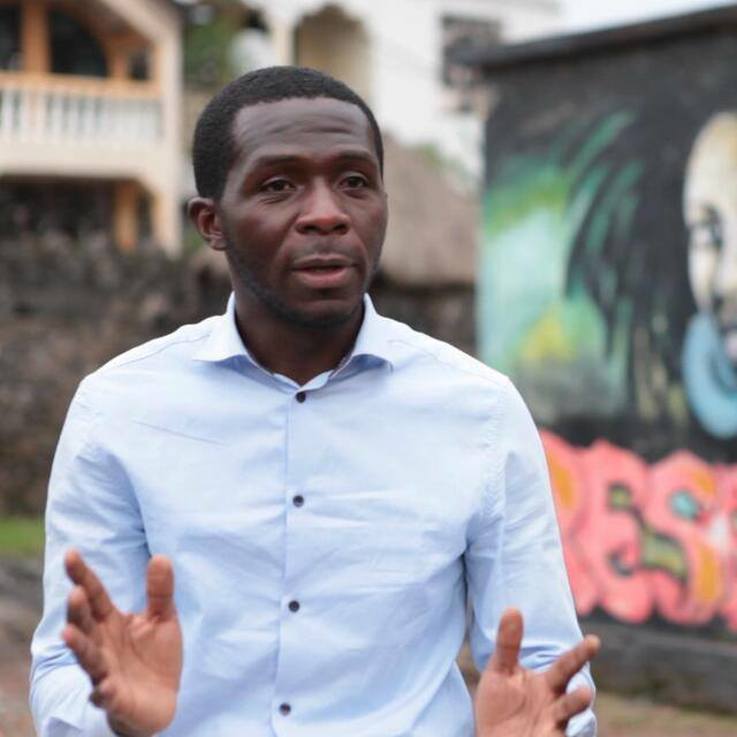
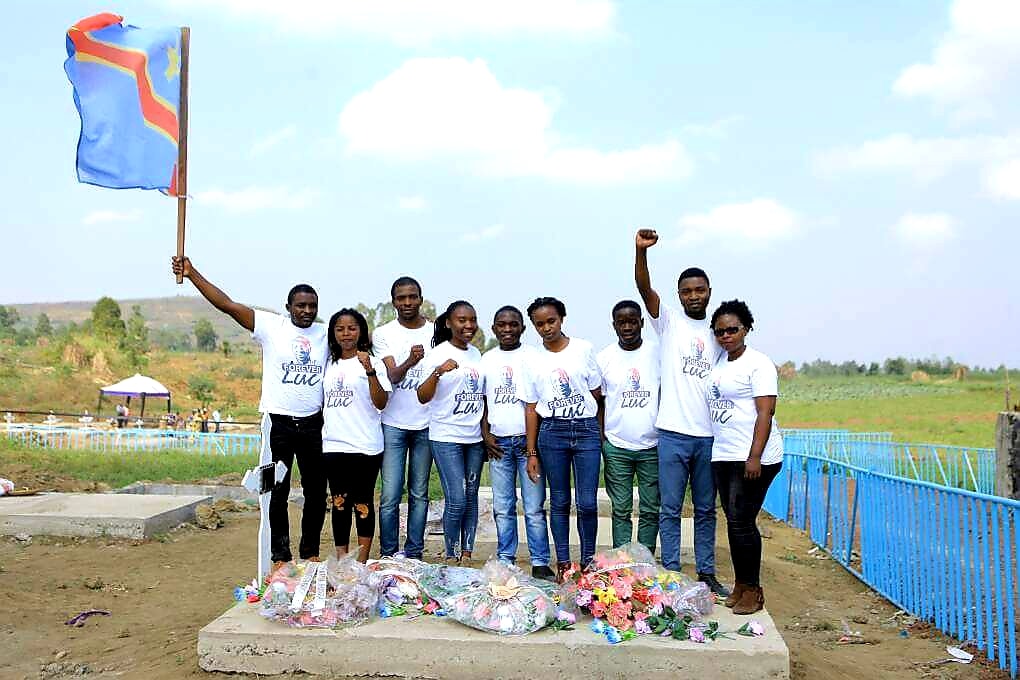
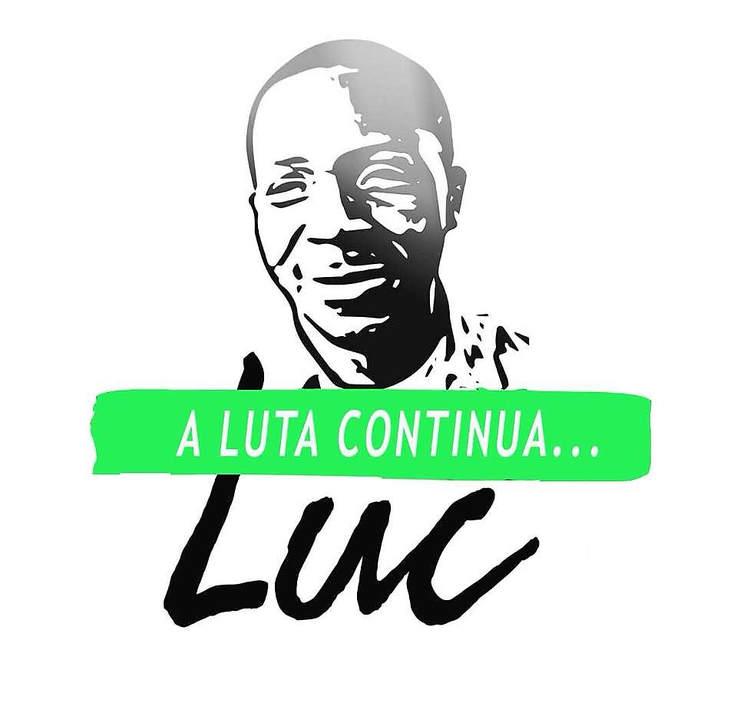

 RSS Feed
RSS Feed
